COLLECTIVE ABA
Explore our high-quality, center-based Applied Behavior Analysis (ABA) therapy for individuals with autism, ages 3 to 21.
Imagine you have a young son who you adore. But, you’ve been told by your doctor that you should institutionalize him. Then, you should forget you ever had him. And it’s not just the opinion of that one doctor. It’s the general view of society. In 1951, Evelyn Kennedy thought this was ridiculous, and believed that there must be others out there who agreed. That’s where our story begins.


1951
Responsible for the first public school classes for children with cognitive disabilities in New England.


1956
New England’s first parent-sponsored, public school facility for children with cognitive disabilities, on Williams Street in Bridgeport.


1956
Wrote Connecticut legislation that made it mandatory for school systems to provide educational services for children with cognitive disabilities. This became instrumental in the establishment of the Connecticut Council for Retarded Children, and later Connecticut’s Division of Developmental Service (DDS).


1959
Founder, Evelyn Kennedy, is appointed by the Governor to the Connecticut Council on Mental Retardation.
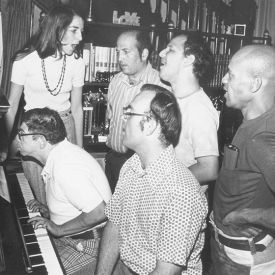

1964
Opens the first group home licensed by the Department of Mental Retardation for adults with disabilities.


1966
Opens the first residential group home for women, at Maridot Manor.


1976
Frank and Fred Ahlbin donate their Garden Street factory building in Bridgeport, Connecticut, which becomes the new organization headquarters and expands program capabilities.
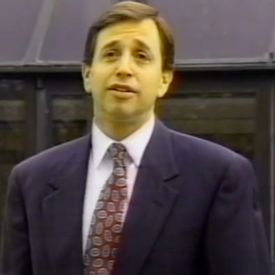

1978
To enlarge the regional services and expand the age group of clients, Martin D. Schwartz is hired as the new CEO and President. Said Evelyn Kennedy, “Marty Schwartz moved the organization to the level of expertise, competency and recognition that made The Kennedy Center name synonymous with excellence.
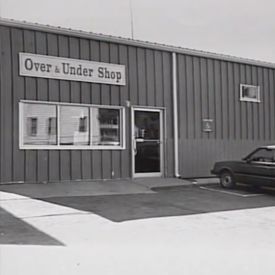

1979
A new Auxiliary is incorporated, and opens the Over and Under Thrift Shop – a business enterprise created to help subsidize the programs and events that support people with disabilities.


1980
The organization amends its name to Parents and Friends of Retarded Citizens Inc., and the second floor of the Garden Street headquarters is transformed into an employment workshop for young adults with disabilities.


1981
As the organization further expands its professional capacity, it achieves its first three-year accreditation from the National Commission on Accreditation of Rehabilitation Facilities (CARF).


1981-1988
Four new residences are opened, five new employment businesses are established, and three community experience projects are begun.
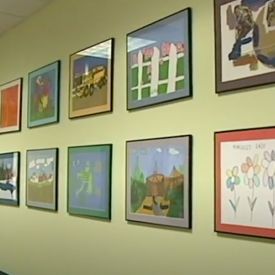

1983
The first edition of The Kennedy Center calendar, A Unique Perspective, is created. The calendar showcases the talents of artists with disabilities – and celebrates the positive, unexpected, and inspiring outcomes of creative expression.


1985
The Facilities Maintenance business enterprise is started to provide custodial, janitorial and landscaping services, while employing people with disabilities. The Workforce Staffing & Placement enterprise is also started, to provide businesses with labor, and people with disabilities opportunities for employment.
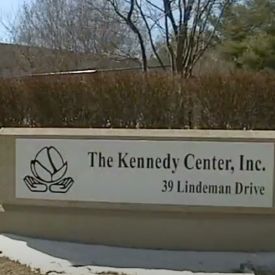

1986
The Kennedy Center, Inc. becomes the new organization name – to honor the spirited determination of Evelyn Kennedy and the founding parents.
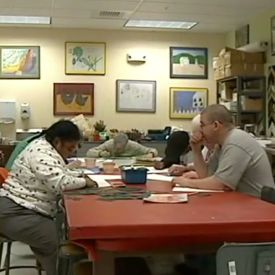

1986-1992
Adds a Cooperative Living Arrangement, a Supported Living Option, and a private rehabilitation program for workers who were injured on the job to its list of achievements. Children’s services are also expanded, while Travel Training and Transportation services are launched.


1992
To accommodate continued expansion, The Kennedy Center acquires a new corporate office on Reservoir Avenue in Trumbull, Connecticut, where it remains today.
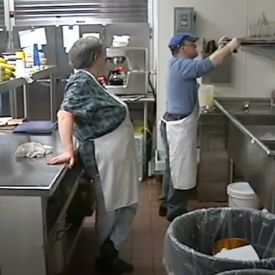

2002
While leading unprecedented program expansion, the organization is rated among the top 1% of rehabilitation facilities in the United States.
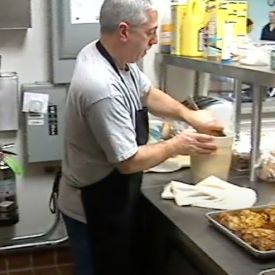

2011
At its 60th anniversary, The Kennedy Center has become synonymous with one of the most comprehensive rehabilitation facilities in the State of Connecticut.
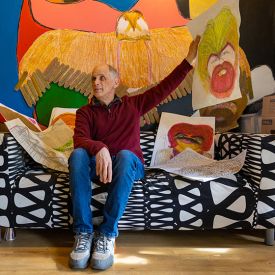

2014
The Maggie Daly Arts Cooperative – a Day Support program that provides creative expression programming – opens its doors.
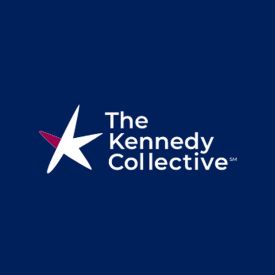

2022
The Kennedy Center is renamed as The Kennedy Collective to reflect the power of our collective impact – that when we unite, to empower and employ, our abilities have no bounds!